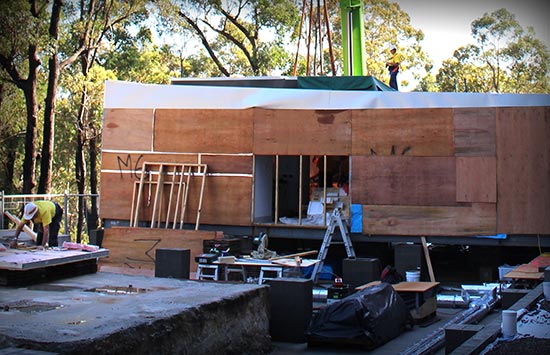
Suicidal behaviour among NSW construction industry workers costs the State economy more than $520 million every year, according to a new report by Hunter Medical Research Institute (HMRI) Health Research Economist Professor Christopher Doran.

Suicidal behaviour among NSW construction industry workers costs the State economy more than $520 million every year, according to a new report by Hunter Medical Research Institute (HMRI) Health Research Economist Professor Christopher Doran.
Over a three-year period from 2010, 141 construction workers committed suicide in NSW – their average age was just 37, which is equivalent to a loss of around 28 productive working years. They are four to six times more likely to die by suicide than a workplace accident, with lower-skilled occupations and younger workers being the highest risk groups.
With these rates being consistently higher than the State and Australian average, the industry body MATES in Construction commissioned the “The Cost of Suicide in the NSW Construction Industry Report” by Professor Doran.
The first of its kind in Australia, the report was launched in Sydney today. It quantifies the economic cost of suicide in the building industry and the success of MATES in Construction’s unique program that delivers training to workers to recognise potentially suicidal behaviour and to keep that person safe until they can gain professional help.
“In Australia mental illness is ranked third in terms of total burden of disease behind cancer and cardiovascular disease,” Professor Doran says. “As a serious public health problem the prevention of suicide hasn’t been adequately addressed in society or the workforce, due to a lack of awareness and the stigma associated with discussing it openly.
“For this report we examined the cost to employers, workers and the government for three levels of severity of injury – short-term absence, long-term absence and fatality. The average cost of a self-harm attempt resulting in a short-term absence from work is $925; each self-harm attempt resulting in full incapacity costs $2.78 million and each suicide attempt resulting in death is $2.14 million.”
After MATES in Construction was established in Queensland in 2008 the risk of suicide in that State’s construction industry decreased by almost 10 per cent. More than 60,000 workers have since been trained across four States.
Program CEO Peter McClelland says the Doran report clearly demonstrates the economic value of the MATES in Construction intervention, as well as its societal importance.
“Stopping suicide saves the Government around $3.66 million each year,” he said. “The MATES program costs around $800,000 a year to run. That’s a return of $4.50 to the government and the community for every dollar spent.”
Details at www.matesinconstruction.com.au
HMRI would like to acknowledge the Traditional Custodians of the land on which we work and live, the Awabakal and Worimi peoples, and pay our respects to Elders past and present. We recognise and respect their cultural heritage and beliefs and their continued connection to their land.

Hunter Medical Research Institute
We’re taking healthy further.
Locked Bag 1000
New Lambton
NSW, Australia, 2305



This site is protected by reCAPTCHA and the Google Privacy Policy and Terms of Service apply.
Copyright © 2024 Hunter Medical Research Institute | ABN: 27 081 436 919
Site by Marlin Communications
